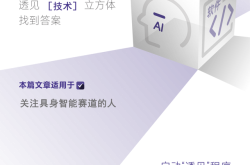Only a fool would believe that "the US government will break up Google"
![]() 08/19 2024
08/19 2024
![]() 607
607
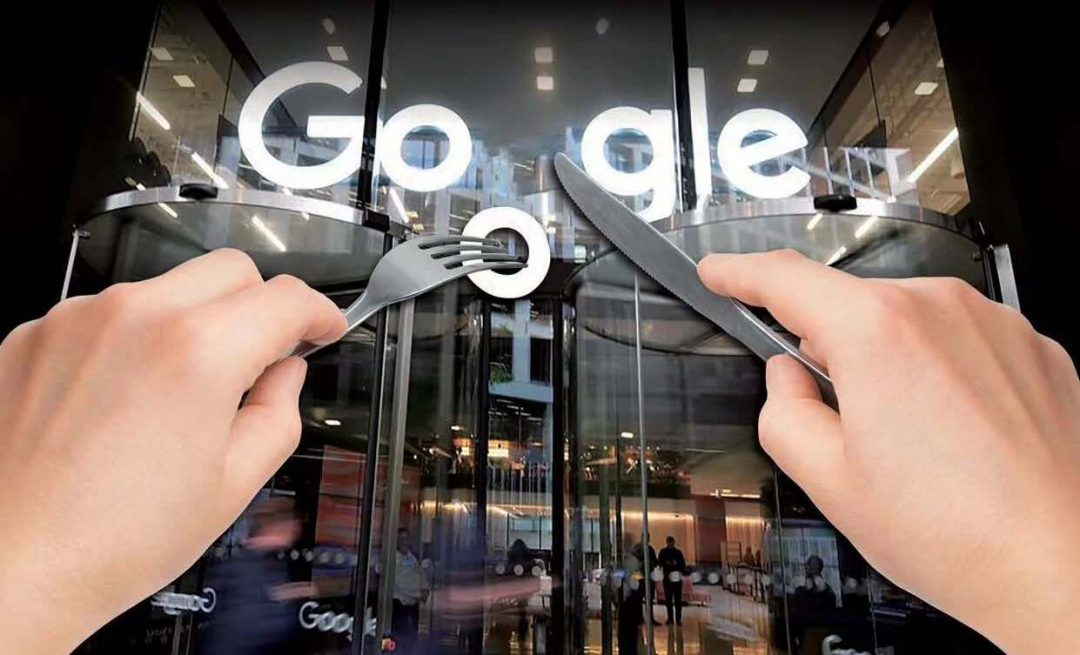
The chance of Google being broken up is lower than that of Hu Ge's home being demolished.
Article | She Zongming
For those who always want to make a big news, this is undoubtedly another piece of news that can evoke words like "Breaking News!", "Just Now!", and "Shocking!"—"The US government is going to break up Google."
The news was not from The Onion, but Bloomberg. The news was well-sourced:
After nearly four years of litigation, on August 5, the US Federal Court ruled that Google was involved in search engine monopoly, marking the first victory of the US government in antitrust lawsuits against large technology companies.
The latest news is that the US Department of Justice is considering breaking up Google.
The butterfly flapped its wings over the Pacific Ocean, and here came the hurricane: When some domestic media followed up, they even omitted the phrases like "exposure or suspicion", directly arranging a bunch of exclamation marks, and prematurely declaring the dismemberment of Google.
It seems that the US government seems to have set its sights on Google, intent on pursuing it relentlessly like Luo Yonghao did with "Teacher Tie".
The question is, is it really possible for the Google empire to be "dismembered"? Will the US tech industry face a major earthquake as a result?
Putting aside the facts, yes, but with a little respect for the facts, we know that it's not true.
After all, there are differences between antitrust actions. In some places, antitrust is "anti-establishment," while in others, it's just "shooting blanks"—because it's not just a matter of wanting to oppose, you also have to go through procedures, procedures, and more procedures...
In my opinion, the chances of Google being broken up are lower than those of Hu Ge's home being demolished. Facing the same risk of "dismemberment," its fate is much safer than TikTok's.
01
Yahoo and Microsoft Bing would probably disagree if you said Google doesn't have a monopoly. Even earlier companies like Lycos and AltaVista might come back to life to argue.
For over 20 years, Google's search engine has consistently dominated the main entry points of the global internet, shouting, "This road is paved for me, this tree is planted by me"—although this scenario fails in a place at 116 degrees east longitude.
In the PC internet era, Google dominated the search engine market; in the mobile internet era, Google again controlled many mobile devices through its Android system.
To date, Google occupies nearly 90% of the global general search market share, and nearly 95% of the search market share on mobile devices such as phones. With its businesses in Android, AI, search engines, Chrome browser, YouTube, Gmail, Google Maps, advertising sales platform AdWords, etc., Google's dominance in the advertising market is almost unshakable.
Data shows that Google Search, Chrome, and Android have an estimated global user base of over 4 billion, 3.3 billion, and 2.8 billion, respectively, making up a significant portion of Google's product suite user base.
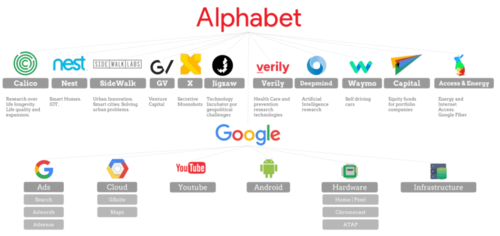
▲Google's parent company, Alphabet, has a product matrix with billions of users.
Google wants to snap its fingers like Thanos: Who on Earth can stop me?
Before OpenAI could even utter a word, the US Department of Justice was unhappy: So arrogant? Let me deal with you with the rule of law.
It must be noted that over the years, Google has been willing to spend heavily to make its search engine the default option on major smartphones and mainstream web browsers. In 2021 alone, it spent $26 billion on "Traffic Acquisition Costs" (TAC), essentially paying rent to companies like Apple, Samsung, browser developer Mozilla, US wireless carriers AT&T, Verizon, and T-Mobile.
Of this, $20 billion went to Apple, accounting for 36% of Apple's Safari revenue, in exchange for Google's default search engine position in Safari on iPhone, iPad, and Mac.
There was mutual interest between Google and Apple. Apple earned "prime storefront fees," to the point that Microsoft begged Apple to acquire Bing, but Apple didn't even give it a second glance; Google earned advertising revenue, and with a swing of its bidding ranking sword, who dared to disobey?
Google and Apple formed an alliance of interests, leaving many companies be forced to keep one's resentment to oneself . Then the US Department of Justice said: I object.
In 2020, the US Department of Justice, along with attorneys general from 52 states and jurisdictions, jointly sued Google, arguing that Google's exclusive agreements with partners like Apple were illegal, unreasonable, and not only suspected of monopoly but also excluded market competition.
The lawsuit lasted for four years, with the US Department of Justice doggedly pursuing Google and eventually winning the case in the name of the people. US Attorney General Merrick Garland stated, "This victory against Google is a historic one for the American people. No company—no matter how large or influential—is above the law."
After winning the case, the US Department of Justice continued to pursue Google with the attitude that "the revolution is not yet successful, comrades must continue to strive:" divestiture of the Android system, Chrome browser, and sale of the AdWords advertising platform.
So, will this really overturn Google's decades-long dominance in the global search market?
It can only be said that you're thinking too much.
02
It's important to know that when it comes to "disappointing," US internet antitrust has never failed to do so.
It often presents a scenario where the foreplay is long, but as for the main event... sorry, the foreplay is the main event.
The last time the US government considered breaking up a tech giant was in 1998, when it targeted Microsoft.
But then... not much happened after that. Two years later, the two sides reached a settlement.
The last successful breakup dates back 40 years to AT&T.
Haven't used that antitrust "knife" in 40 years, do you really believe it can still be used to cut into the flesh of giants?
Compared to Microsoft's bundling of operating systems and browsers over 20 years ago, Google's practices are far less severe in nature. Some legal experts argue that the core of Google's illegal conduct is simply harm to relevant market competition, rather than seeking cross-market advantages.
If Microsoft was able to walk away after paying an $18 billion settlement, abandoning exclusive agreements harmful to competition, using uniform contract terms, and releasing parts of Windows' source code, what are the chances of Google being broken up?
Furthermore, antitrust lawsuits in the US have always been protracted battles. Microsoft's antitrust case took six years from filing to settlement approval.
George Hay, a former chief economist in the US Department of Justice's Antitrust Division, predicts that Google's appeal process could last up to five years, giving Google ample time to resist any injunctions on default settings imposed by the court.
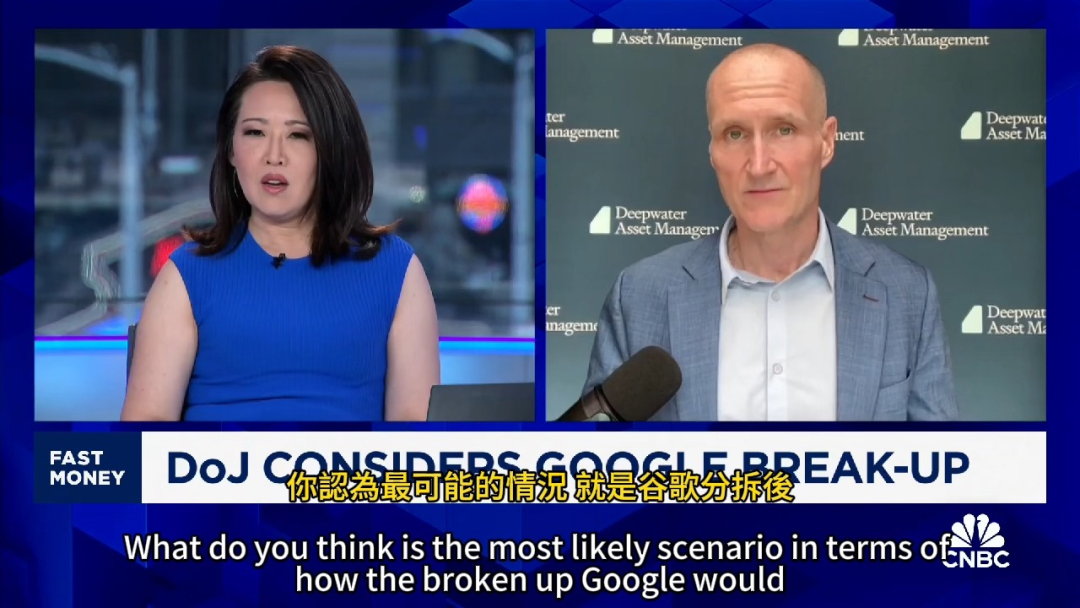
▲The "breaking up Google" incident has also attracted much attention from American media.
US tech giants won't just stand there and take it; arguing their case is standard operating procedure, and even if they don't have a legitimate argument, they'll find one.
Even if the court does rule that Google must divest its businesses, Google can delay the implementation of the "divestiture" or change the punishment through appeals and negotiations with the US Department of Justice.
Past precedents also show that US courts are lenient towards remedies proposed by the government after case rulings, giving Google ample room for maneuver and compromise.
Ultimately, the longer it drags on, the more variables there will be.
US investment bank Wedbush also believes that the US Department of Justice's antitrust action may take "several quarters or even years" to reach a final outcome, and it expects Google's near-term business to remain unaffected.
Analyst Dan Ives shares this view. In his opinion, the breakup of large tech companies' business models is highly unlikely in the future, though business model adjustments and stricter scrutiny of mergers and acquisitions will be primary and core issues.
This is where the difference lies between regulation and regulation—
In some places, when the regulatory authorities blow a wind, the rain will soon follow.
In other places, before the regulatory hammer falls, various procedures must be followed, and there will be repeated negotiations influenced by lobbying, appeals, and other factors.
03
An important factor that cannot be ignored here is the China-US tech war.
The US government's antitrust winds first blew towards Silicon Valley in 2019. Not only Google but also companies like Apple, Meta, and Amazon have been "targeted." For example, Amazon was accused of illegally monopolizing online retail last September, and Meta's acquisitions of WhatsApp and Instagram over a decade ago are also under scrutiny.
But five years have passed, and only Google has been hit with the antitrust hammer.
Considering that the FAAMG stocks are representatives of the US's "new productive forces," and given the intense China-US tech rivalry, will the US government really weaken its international competitiveness under the guise of antitrust?
Or will the US undermine its own tech competitiveness?
Before considering Google, Apple, Meta, and Amazon as "monopolists," viewing them as "core US competitiveness" is probably an unavoidable consideration in US internet antitrust.
After all, by hammering Google, the dominoes that could fall could weaken the competitiveness of US tech companies.
Internet scholar Pan Helin asserts that while the "opening up" of giant companies will lead to a surge of SMEs and subsequent innovation, given the current competitive pressures between countries, the US may not proactively weaken corporate strength through divestitures, and there is more bluffing than substance.
They won't mistake Google for TikTok.
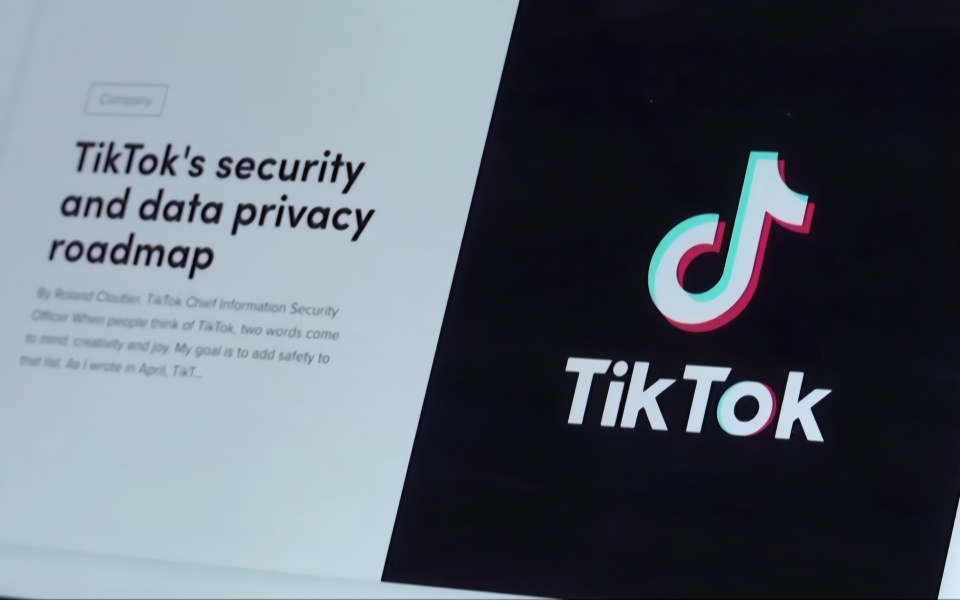
▲Under the aegis of "Initial D-style America," Google's divestiture crisis is not as severe as TikTok's.
In fact, even the US Department of Justice is considering other relatively moderate options, including requiring Google to share data with competitors such as DuckDuckGo and Bing, and seeking restrictions on Google's AI products to prevent them from gaining unfair advantages.
In this way, it is difficult to shake Google's throne in the search domain.
It's worth noting that Google looked unhappy after losing the case: "The ruling acknowledges that Google provides the best search engine, but concludes that we shouldn't easily obtain it."
Apple previously refused Microsoft Bing's request outright, insisting on keeping Google as the default search engine for Apple products, because Apple believed it had chosen the best search engine—a strong partnership with Google aligned with Apple's consistent pursuit of ultimate product design and smooth user experience.
Even if Google is forced to abandon its exclusive agreements, what are the chances that other phones and browsers won't use Google Search?
04
"The US is going to break up Google" is most likely a storm in a teacup.
Thinking that the US government is going to hammer Google is probably wishful thinking.
And Google's dominance in the search world is not something that can be knocked down by "thundering but not raining" antitrust actions.
But that doesn't mean Google can sit back and relax.
Just a few days ago, Google's former CEO Eric Schmidt spoke at Stanford University, where he freely expressed himself and earnestly told the students that the meeting was confidential and that they should not spread what he said.
Little did he know that the speech was being broadcast live.
The speech contained many interesting tidbits, such as championing NVIDIA's unshakable AI dominance and commenting that Tesla and TSMC are impressive for being able to "roll up their sleeves."
He also talked about Google—
Why is Google losing so badly in the AI field now? Because Google believes that letting employees go home early and balance their work-life is more important than winning the competition. If your employees only come to work one day a week, how can you compete with OpenAI or Anthropic?
When Microsoft partnered with OpenAI, they themselves found it hard to believe that they would outsource their most important AI business to such a small company. They were wrong again. Looking at Apple's lackluster AI efforts, it seems that big companies have really become bureaucratic, and hustlers are now starting their own businesses.
After realizing his "big mouth" had caused trouble, Schmidt quickly apologized to his former employer in public.
But what he said was not entirely untrue: As a pioneer in AI, Google was once ahead of the pack with AlphaGo, but later lost ground to OpenAI, missing the opportunity to seize the initiative in generative AI.
As for autonomous driving, Google's parent company, Alphabet, was once at the forefront with Waymo, but He Xiaopeng has predicted that Tesla's FSD autonomous driving capabilities will surpass Waymo by 2025.
In the past two years, Google's development trajectory has often been described as "AI frustration" and "advertising triumph."
Some Google employees have pointed out that "Google has four core cultural problems, all of which are natural consequences of having a money-printing machine called 'advertising' that grows relentlessly every year, covering up all other sins. These four problems are: 1) lack of mission; 2) lack of urgency; 3) the illusion of exceptionalism; 4) poor management."
In our circles, self-media outlets could churn out a bunch of articles with titles like "Google Has No Dreams."
While Google remains dominant in traditional search, who knows what the future holds?
With the advent of AI search, the biggest danger facing Google may not come from antitrust actions.
Economist Paul Krugman said: "High-tech competition is inherently a series of "winner-takes-all" games, where "taking all" is only temporary monopoly. Once something better comes along, it will disappear."
Zhang Weiying's words echo this sentiment: It is new entrepreneurs, not antitrust authorities, that truly defeat "monopolists."
Editor | Li Wan
Welcome to share on WeChat Moments
Reprinting must be authorized






